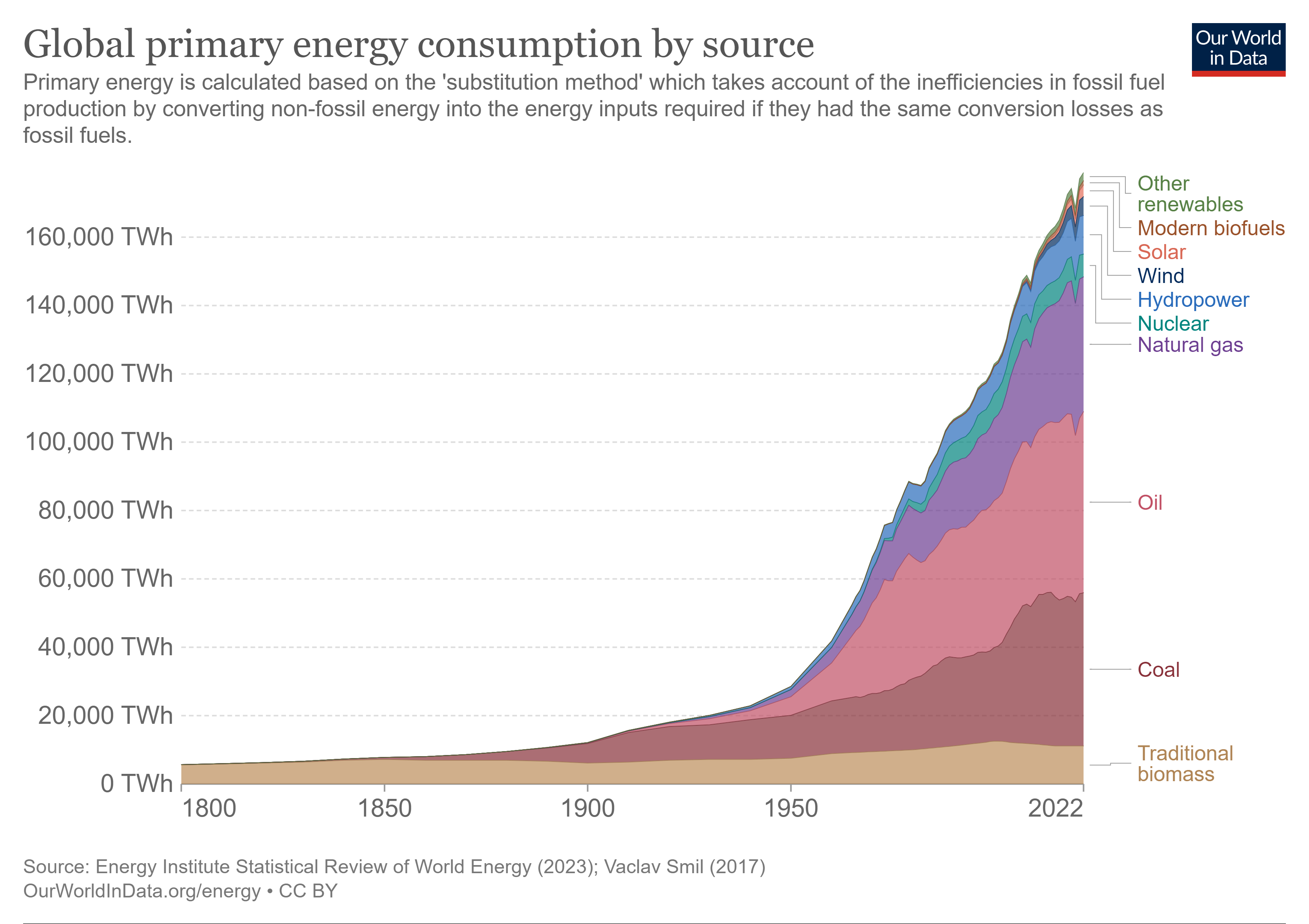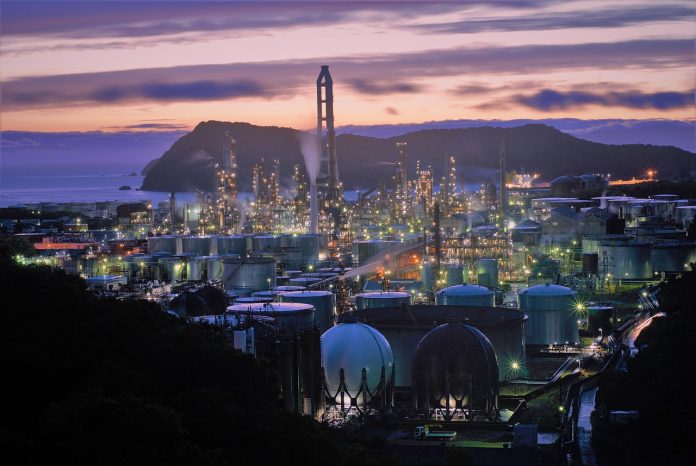A recent article posted on British magazine spiked (stylized in lower case) describes the hurdles and realities of the so-called rapid energy transition away from fossil fuels. The article correctly points out that the infrastructure and standards of living in developed countries depend entirely on fossil fuels, and to reach net zero emissions would involve likely unacceptable sacrifices, and human suffering.
The spiked article, titled “The human cost of Net Zero,” written by Ralph Schoellhammer, quickly points out that despite decades of climate alarmism and a push to abandon fossil fuels, the proportion of fossil energy to other sources has not changed much.
Schoellhammer writes that “[f]or all the talk of the advances made in renewable energy, the proportion of our electricity production reliant on fossil fuels has barely changed over the past 40 years. In that time, only nuclear power has declined as a source of electricity.”
This is true for electricity, but it’s also the case for energy consumption in general that fossil fuels are not seeing a global decline in the share of energy they make up. Globally, according to data on global primary energy consumption from Our World in Data, coal, oil, and natural gas make up the bulk of the energy mix. (See figure below)

As global energy demand increases, consumption of fossil fuels likewise increases.
The ideal of Net Zero emissions by 2050 could be met, writes Schoellhammer, but the rapid “abandonment of fossil fuels that this demands would inflict misery and hardship on billions of people.”
When energy issues begin to arise, Schoellhammer points out that even green leaders like Germany retreat back to burning lignite coal to keep the lights on.
On that note, as recently covered by Climate Realism, here, companies like Exxon Mobil are beginning to admit that the International Energy Agency’s idealized scenario where the world will reach net-zero emissions by 2050 “has little bearing in reality.” The Exxon spokesman said that it’s “highly unlikely that society would accept the degradation in global standard of living required to permanently achieve a scenario like the IEA NZE.”
Grid officials in the United States seem to agree, with Federal Energy Regulatory Commission (FERC) Commissioner Mark Christie warning that the United States is “heading for potentially very dire consequences, potentially catastrophic consequences,” in terms of our grid because of a shortfall of power supply as shortsighted politicians demand the closures of fossil fuel power plants.
The renewables that climate alarmists like those at the IEA are most fond of pushing are wind and solar, which also are extremely unreliable when they are needed most, like during extreme weather events, at night, or when the sun is simply behind clouds or when the wind dies down.
Climate Realism points out the intermittency and high economic and environmental costs of wind and solar makes it unlikely they make up a significant portion of the world’s energy mix here, here, and here, for instance, in the near future. The reality is that intermittent sources of energy, and even some proposed solutions like using hydrogen electrolysis combined with solar for energy storage, have serious logistical problems.
Sources like wind and solar are also expensive, despite what proponents claim. As explained in Energy at a Glance: Solar Power Reliability and Costs, and Wind Costs and Generation, while their levelized costs may be reported as comparable with other generation technologies, the price begins to increase as the capacity factors, repair/replace/removal costs, and extra infrastructure requirements are taken into account, including the burden of an intermittent power source on the grid itself.
Schoellhammer points out that the world depends on products like cement, steel, plastics, and ammonia for fertilizers and industrial uses, none of which could be produced without fossil fuels, and without which, modern infrastructure could not continue to exist.
“In fact, every step of the proposed energy transition is itself dependent on fossil fuels. You cannot build a wind turbine without lubricants from oil, a concrete foundation and copious amounts of steel. Just as you cannot make solar panels without polysilicon, a component that is immensely energy intensive to produce because it requires temperatures beyond 1,150 degrees Celsius.”
While it is true that renewables can generate electricity, the question of “how many wind turbines would it take to build a wind turbine” – from mining the materials to manufacturing to transportation and installation– is not so easily answered with renewables themselves. As Schoellhammer correctly indicates in the spiked piece, mining and industry run on diesel fuel and coal.
Climate Realism concurs with Schoellhammer’s analysis on the importance of fossil fuels to agriculture, and has reported on the subject here, here, and here, for instance, especially when it comes to fossil-fuel derived fertilizers. Sri Lanka is the best contemporary case study on what happens when synthetic fertilizers are banned, and the short answer is: famine.
Pointing out the reality behind the fantasy of net-zero by 2050 is a vitally important to making sure the public are aware that there is no such thing as free energy, and especially not fossil fuel free energy, without crippling the standards of living in both the developed and developing world. Schoellhammer deserves praise for shining a light on the continued vitality of fossil fuels to modern civilization, and spiked for publishing this truth, especially as other media groups actively support climate alarmism and the push for net-zero.

















